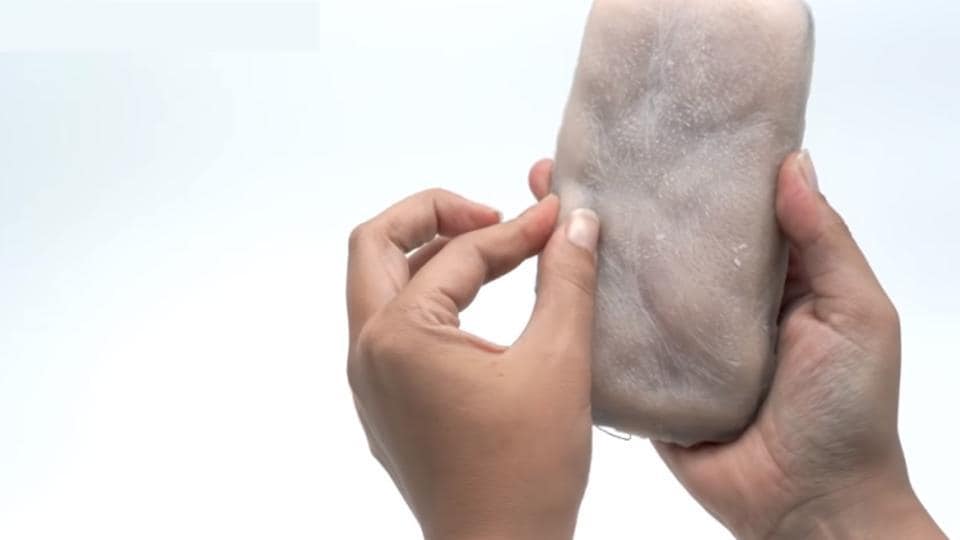Researchers develop human skin-like phone case which can be tickled, pinched
Called “Skin-On” interface, the material mimics human skin in appearance as well as in sensing resolution.

Researchers have developed a new interface that allows phones, wearables or computers to "feel" sensations such as tickling, caressing, twisting and even pinching just as the human skin does.
The "Skin-On" interface, mimics human skin in appearance but also in sensing resolution.
In the study, the researchers created a phone case, computer touch pad and smart watch to demonstrate how touch gestures on the Skin-On interface can convey expressive messages for computer mediated communication with humans or virtual characters.
The researchers demonstrated that tickling the skin can generate a laughing emoji on a phone, while tapping it can create a surprised emoji.
"One of the main use of smartphones is mediated communication, using text, voice, video, or a combination," said lead author of the study Marc Teyssier from Telecomm ParisTech in France.
"We implemented a messaging application where users can express rich tactile emotions on the artificial skin. The intensity of the touch controls the size of the emojis. A strong grip conveys anger while tickling the skin displays a laughing emoji and tapping creates a surprised emoji" Teyssier said.
The study scheduled to be presented at the 32nd ACM User Interface Software and Technology Symposium to be held in New Orleans in the US from October 20-23 takes touch technology to the next level.
The researchers adopted a bio-driven approach to developing the multi-layer, silicone membrane. This is made up of a surface textured layer, an electrode layer of conductive threads and a hypodermis layer.
ALSO READ: 96% of deepfake videos online contain porn: Study
Not only is the interface more natural than a rigid casing, it can also detect a plethora of gestures made by the end-users.
As a result, the artificial skin allows devices to 'feel' the user's grasp -- its pressure and location, and can detect interactions such as tickling, caressing, even twisting and pinching.
ALSO READ: Mark Zuckerberg is serious about brain-reading tech, plans to use it for AR, VR
"This is the first time we have the opportunity to add skin to our interactive devices. The idea is perhaps a bit surprising, but skin is an interface we are highly familiar with so why not use it and its richness with the devices we use every day?" said University of Bristol Professor Anne Roudaut who supervised the research.
"Artificial skin has been widely studied in the field of robotics but with a focus on safety, sensing or cosmetic aims. This is the first research we are aware of that looks at exploiting realistic artificial skin as a new input method for augmenting devices," Teyssier said.
Catch all the Latest Tech News, Mobile News, Laptop News, Gaming news, Wearables News , How To News, also keep up with us on Whatsapp channel,Twitter, Facebook, Google News, and Instagram. For our latest videos, subscribe to our YouTube channel.






























